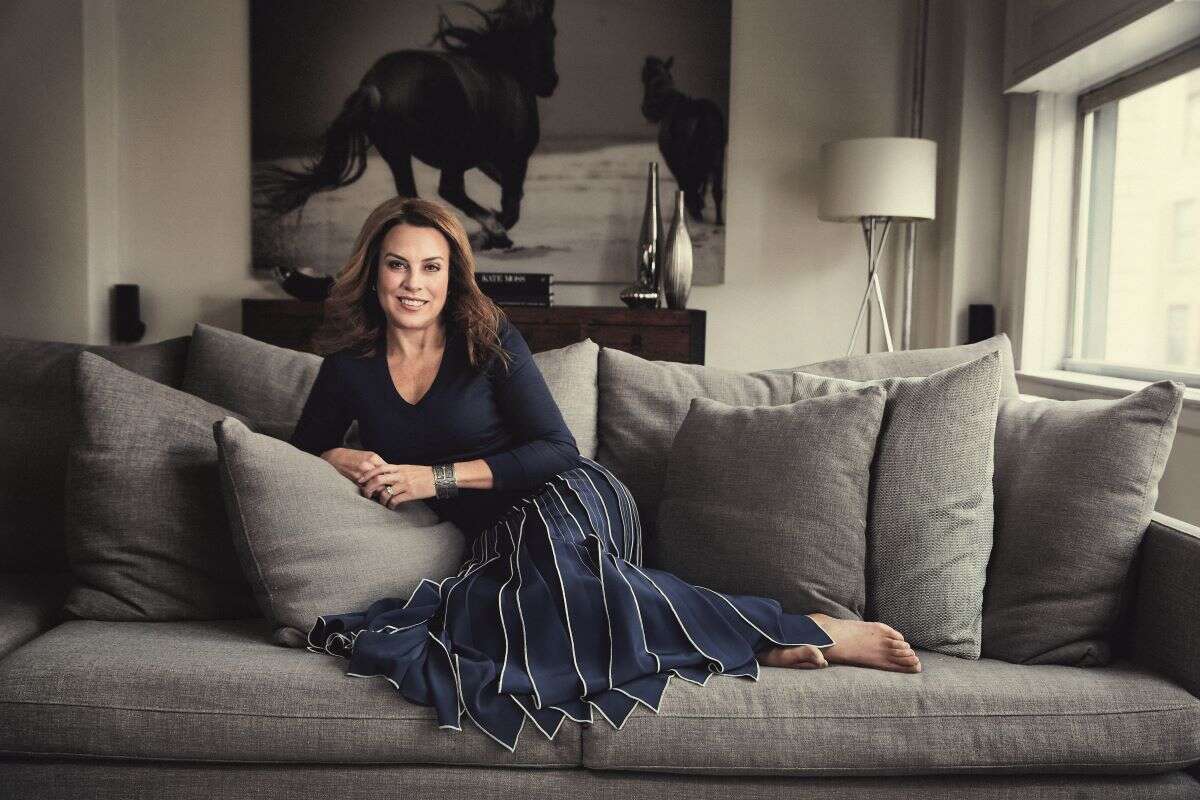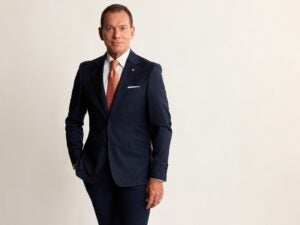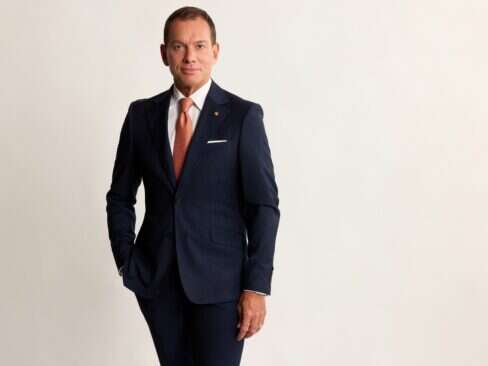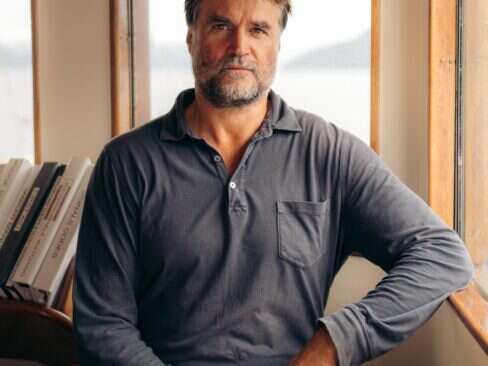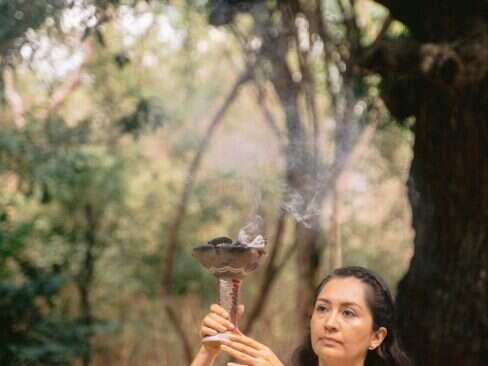When Deborah Calmeyer was 12 years old, her dad came home to the family’s farm in Zimbabwe with a lioness cub he had found at a local rescue center. Carmel — as she was soon named — quickly became a much-loved member of the family.
“She was like our third Labrador,” recalls Calmeyer with a smile. “She would come and pick me up from school. And then she grew and grew until she terrified everyone. She was well-fed on the farm so she was never really hungry, but that didn’t mean she lost her instincts as a wild animal… one swipe and our other dogs would go flying!”
Carmel eventually went back to the lion sanctuary, but she left an indelible mark on Calmeyer’s life. Now 51 years old, the entrepreneur runs an ultra-luxe safari business, Roar Africa, crafting bespoke itineraries for guests (Robert Redford and Leonardo DiCaprio are among her star-studded clientele).
[See also: Ben Goldsmith on Philanthropy, Rewilding and Tackling His Critics]
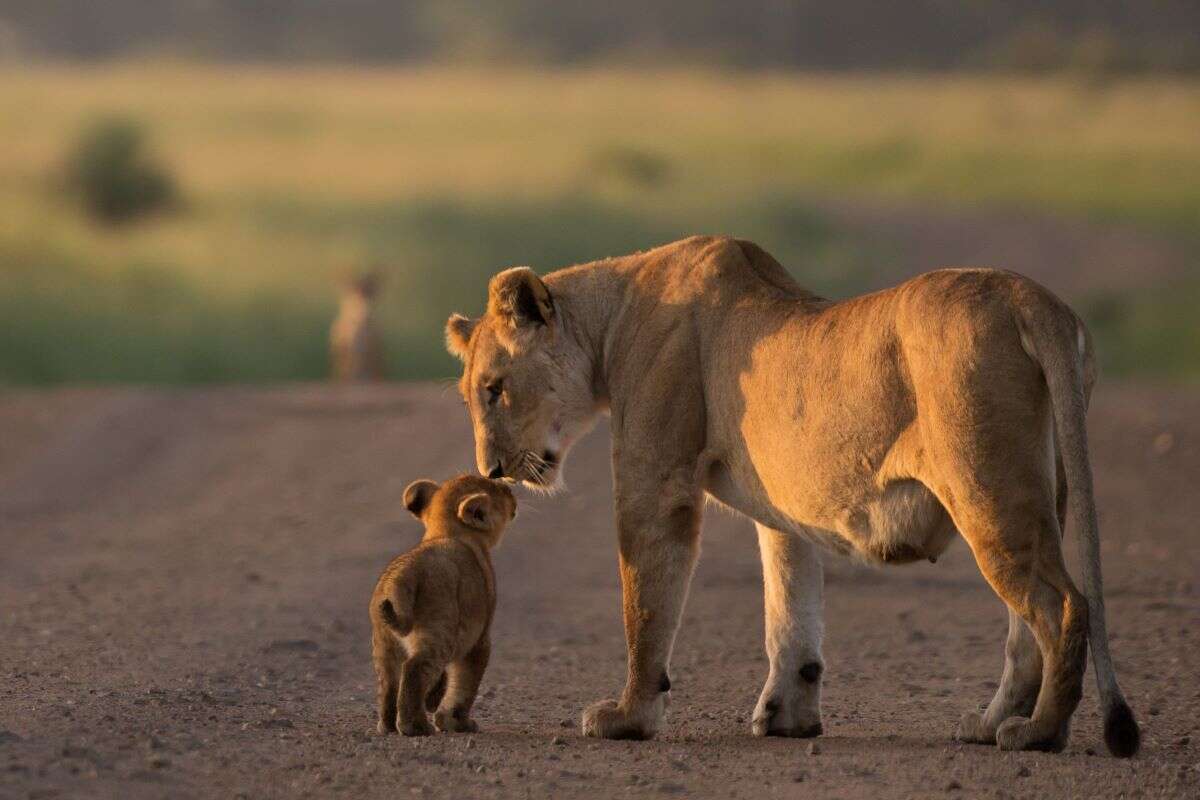
Calmeyer greets me warmly over a video call from her home in Cape Town (she splits her time between Cape Town, New York and Miami). She’s wearing a flowing lime-and-cream linen dress, her hair perfectly coiffed. At first, it’s hard to imagine her as a little girl growing up on the farm, water-skiing in lakes full of crocodiles and tracking elephants in the Zimbabwean bush. Scratch the surface, though, and it’s clear to see her deep affinity with nature never went away.
A profound respect for wildlife was instilled in her from a young age by her father, who worked as a zoologist. “Both my parents were, in their own ways, in love with the bush, as I think most Africans are,” she tells me.
At 15, with mounting pressure under the Mugabe regime, Calmeyer and her family left Zimbabwe and moved to South Africa, settling in the coastal province of KwaZulu-Natal. But she had always yearned to live in New York and, at 24, finally moved with her boyfriend (now husband) to Manhattan.
Nothing could have prepared her for how much she would miss home. “I didn’t expect to feel the absolute rip from Africa and this incredible tear in my heart,” she says. “It was a disaster. I had no money and didn’t know anyone. The homesickness just consumed me.”
[See also: Mark Donald on Whisky, Foraging and Tattie Scones]
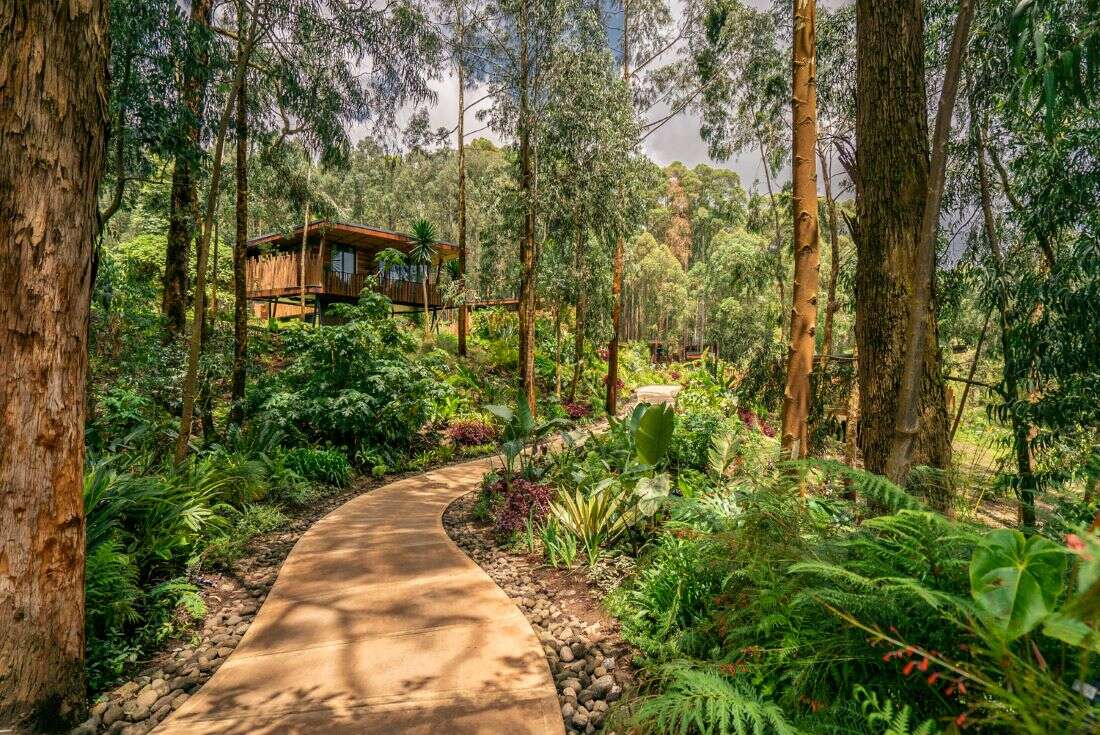
Eventually, Calmeyer got her green card and began settling into her new life. People would often hear her accent and ask for help planning their itineraries for a once-in-a-lifetime trip to Africa. She quickly realized she enjoyed advising them — and had a knack for it, too. When her father, then in his mid-60s, found himself out of work, she had an idea: “I told him to get his guiding license and that I would try and send him a couple of families a year,” she explains. “It was just going to be a bit of a side hustle in his retirement to help support him…” One thing led to another, and she ended up founding Roar Africa, running the business alongside her demanding sales job for six years.
To say this time was challenging is an understatement; Calmeyer remembers this period as one of the toughest in her life. “When I think back to it, I’m like, ‘Who the hell was that?!’” she chuckles. Her evenings and weekends were spent poring over maps, comparing flight prices and vetting lodges.
Perhaps most difficult of all was the deeply ingrained sexism she faced trying to break into the male-dominated safari industry. “It’s a bit like working in the Wall Street of the bush,” she says with a wry smile. “It’s run by men who are a real pain in the ass with confident, demanding women like me — it’s not what they’re used to.”
Calmeyer refused to back down, instead placing women at the heart of her business. Her vision? “If African women rise, wildlife will thrive.” To this end, her company employs 85% female staff spanning every role from pilots to rangers, trackers and conservationists. Each year, she runs a Women’s Empowerment Retreat hosted by an all-female team, shining a light on the work of influential and inspiring African women through a series of talks and excursions (the 2025 trip will take place from April 8-12 in Botswana).
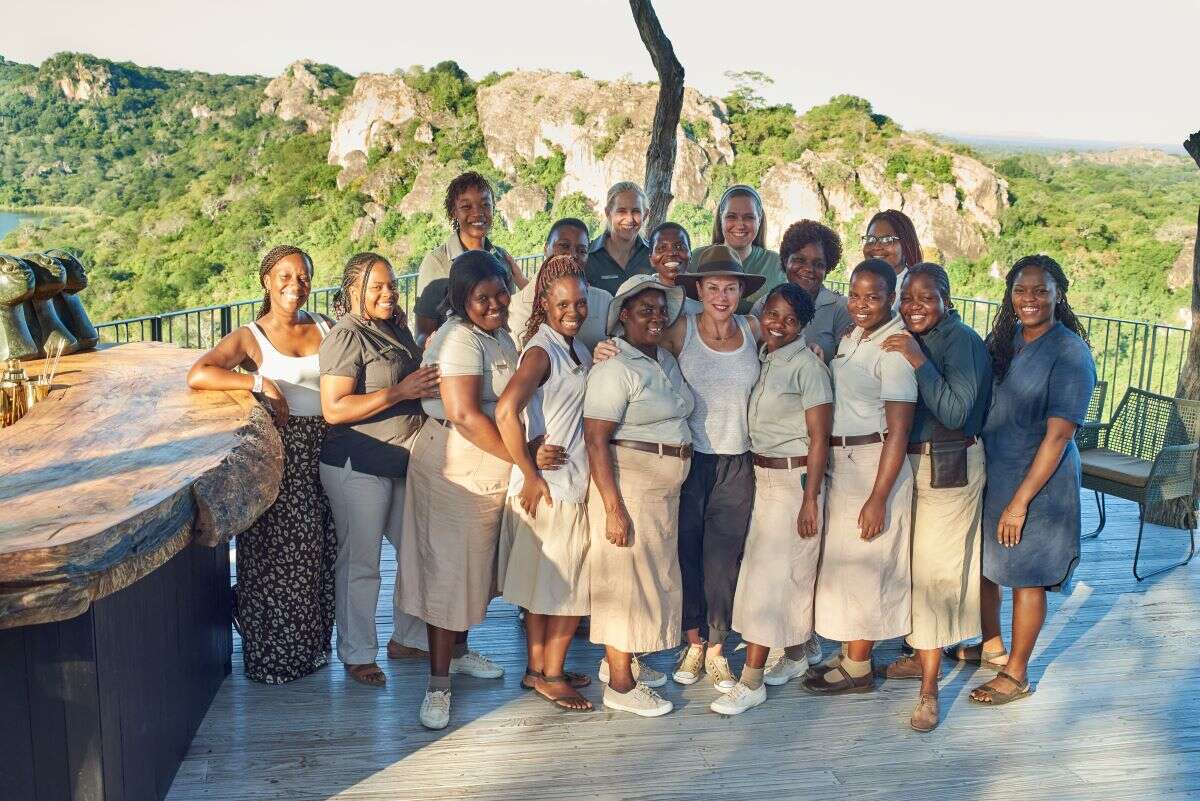
It’s been especially rewarding to watch the annual retreats open new career paths for women in the local community. Last year, for example, she brought a female guide from South Africa to Zimbabwe for the trip. “Two of the wait staff came up to me at the end of the trip and said, ‘We didn’t know women could become guides… How do we sign up?’ That’s the power of perception.”
When it comes to crafting itineraries for her clients, Calmeyer admits she’s a perfectionist: No two trips are the same. These days, she’s picky with who she chooses to work with; she only wants to share Africa with those she believes will respect it.
In 2019, she teamed up with Emirates to introduce what she calls ‘The Greatest Safari on Earth’ — a lavish, 12-day trip on board a private jet visiting four of Africa’s most iconic destinations (which was featured in the Hotels, Resorts and Spas 2024 edition of Elite Traveler). And this year, she is launching a brand-new Sand, Sea, City & Safari trip, which hit headlines as one of the world’s most expensive private jet safaris (prices start at a cool $165,300 per person). Calmeyer meticulously plans the trip herself — “It’s brain surgery, logistically” — and is there to ensure everything runs smoothly. “I can see why someone hasn’t invented this before, because you’ve got to be kind of crazy,” she says.
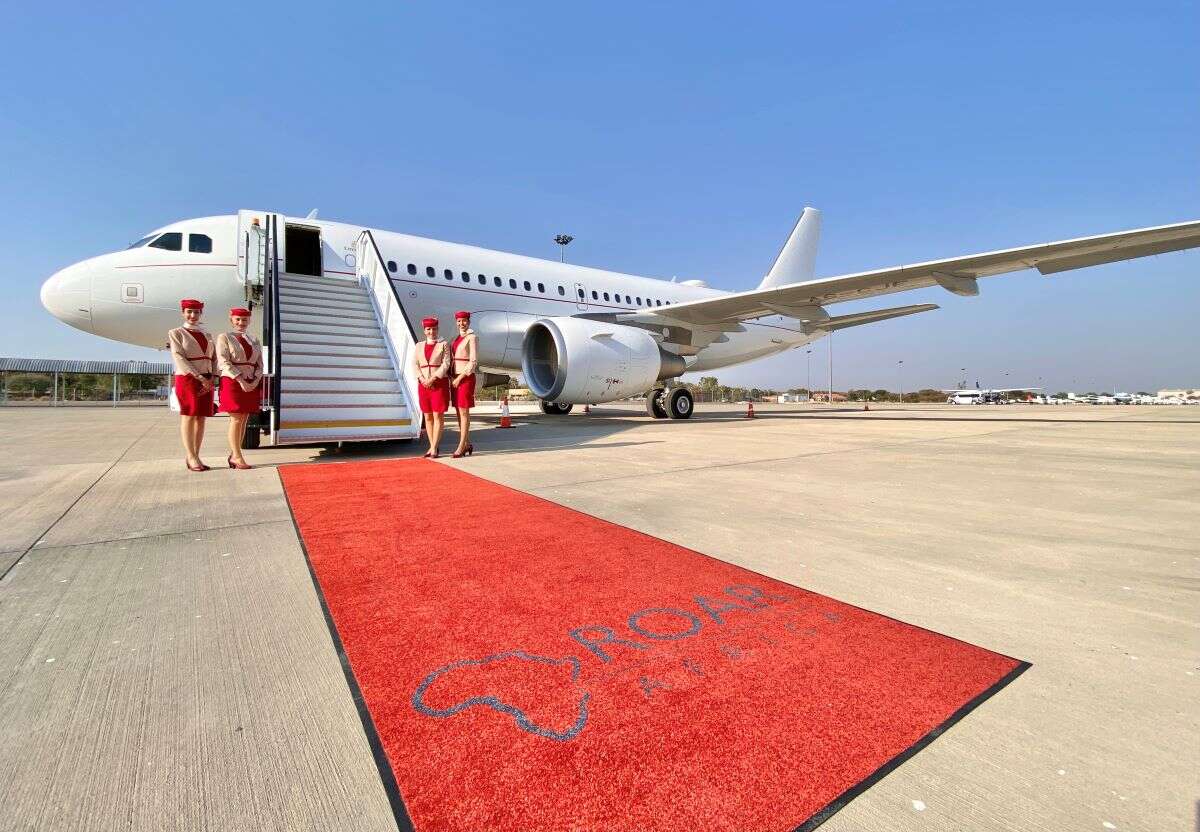
I ask whether she feels conflicted about bringing private jets to Africa when she’s always been so dedicated to preserving the country’s beautiful wilderness spaces. “I do,” she says, pausing as she weighs the question. “But if someone says to me, ‘Do you want to go on a private jet or fly commercial?’ — I’m going on that private flight! Because commercial is hell. Is it ideal? No. Is it going to go away? No. So we’re doing private jet travel in the best way possible.”
To minimize the environmental impact, carbon credits are purchased equivalent to the emissions from not only the private jet journey but also the small planes, helicopters and Land Rovers from the entire trip, with the money invested into wildlife conservation projects on the ground.
But Calmeyer isn’t stopping there. Her energy and passion for her craft is boundless; her eyes light up as she tells me about the latest trip she is in the throes of designing, this time focused on the Cape Floral Kingdom — a region near South Africa’s southwestern tip that is home to the highest concentration of plant species on the planet. “We can still do the Big Five,” she tells me. “But there’s so much more to Africa that hasn’t been celebrated yet. I can’t wait to share it.”
[See also: Alex Assouline on Bold Ambitions for His Family’s Luxury Publisher]





